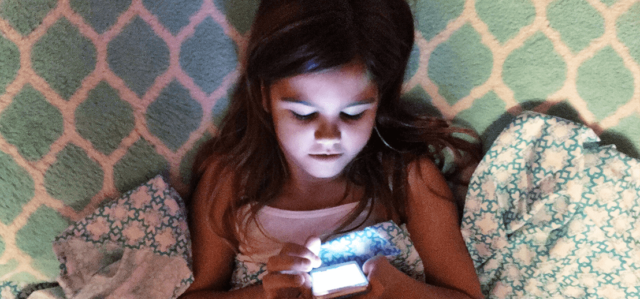How to Arm Your Child Against Bullying
How to Arm Your Child Against Bullying
And why are kids so mean to each other, anyway?
Clinical Expert: Gail Saltz, MD
en EspañolWhat You'll Learn
- What does bullying look like?
- How and when should I talk to my child about bullying?
- What are the best ways to stop bullying?
Quick Read
Kids bully each other for different reasons. Usually, the bully does it as a way to get power or be more popular. Bullying is more than teasing. It’s done to hurt a kid on purpose, over and over. And it can make a kid feel depressed and anxious. Cyberbullying, which means using the internet and social media to bully, has become one of the main ways kids hurt each other.
You can help protect your child from bullying. If you start talking about bullying before it happens, your kid will feel like it’s okay to come to you if it does happen. It’s good to make your child feel like you will help them and that you’ll work together to stop it. And it’s just as important for your kid to know that it’s never okay to bully someone else or to join in when another kid is being bullied.
The most important thing a kid needs to remember is that bullying only works if the bully gets what they want. They want attention or to get a rise out of you. So, ignoring the bully is the best thing to do. Help your kid come up with a few things they can say so they can walk away without giving the bully what they want. This is especially true if they are being bullied on the internet. That means turning off their device right away but not erasing what the bully has posted. They should keep it as proof.
One of the best ways to stop bullying is for kids to stand up for each other. It’s great if your kid can make a pact with their friends to stand up for each other. If bullying continues, your kid’s school should know about it, whether it’s in-person or online.
Full Article
5 min read
Getting bullied is a traumatic experience for a child. It diminishes self-esteem, leaves kids feeling depressed and anxious, and can have long-lasting effects. And, of course, modern technology creates more opportunities for bullying than ever before.
Why do kids torture each other this way? It’s normal for children to have some aggression. The question is how much they have, what they do with it, what parents are teaching them at home about it, and what’s being modeled for that child in terms of managing aggression. Kids who are bullied at home are far more likely to go out and bully other kids.
But the number of kids who bully others because they truly have sociopathy brewing, or are oppositional defiant kids, who may in fact derive gratification from the pain of others, is a relatively small number compared to the amount of bullying that goes on.
Bullying as a power play
Others, and this is particularly true for girls, who may actually have a high social IQ and know how to work a system, will use bullying for power, to fortify their position. Here again, parents are influential. Are the parents expecting this child to be the powerful one? Are they sending either overt or covert messages that they want their child to be important, to be popular, to be feared?
Insecurity can also drive bullying — the feeling that unless you bully you will be the powerless one.
Also, unfortunately, there are now many more opportunities for bullying. Certainly the Internet and cell phones and all the social networking technology have opened up this whole arena of ways to bully. In some ways cyberbullying is more insidious and scary, from the perspective of an adult, in that it’s 24/7.
A child who’s being bullied at school at least comes home at some point and is safe with her family. With the computer that potentially never goes away: at any time you could turn it on and find that someone has written something to shame and humiliate you, and you might not even know who is doing that to you.
Here are some tips on how to talk to kids about bullying:
1. Forewarn your child.
Talk to your child about what bullying is, the signs of bullying, and whether or not it’s going on. Make sure she knows that if something happens, in school or online, she should tell you, and you will support her and together figure out how to work it out. If something is happening online, it’s especially important that she NOT respond before telling you about it. With bullying, it’s critical to not engage, to not feed it by being exactly who the perpetrator is looking for — someone she can get a rise out of. And she should NOT erase the hurtful post before talking to you. It should be saved somewhere, because sometimes you need to collect evidence of what’s been going on.
2. Fortify your child.
Make it clear that bullying says less about the victims personally than it does about the bully. This kid has a problem and others have to learn how to deflect and contain this problem, and not feed what’s going on. Explain that the worst way to respond is a sort of mob mentality — other children who are afraid of being targets will join with the bully and abandon the victim. Teach your child to resist the herd effect, not to pile on when someone else is being bullied. If she has the strength to support her friends, they will find the nerve to support her.
3. Practice appropriate responses.
If you’ve had conversations with your child before bullying starts, she’ll be more likely to come to you if she becomes a target. That gives you a chance to have a dialogue and role-play with her at home. So-and-so said this; okay, what are a couple of lines she can say if it happens again? When a child is insulted or humiliated, she is likely to be stunned, and you want to help make sure she doesn’t react in a way that adds fuel to the fire. It helps to come up, in advance, with four lines she can say, that she feels comfortable with, to deflect what is going on. You can also think together about people or friends she can confide in, and hope for support from.
4. Find allies.
Encourage your child to make a deal with his friends: If you stick up for me, I’ll stick up for you. Data shows that the most effective way to combat bullying is for bystanders to step in and say, “Hey, that’s my friend; don’t do that.”
5. Talk to your school.
The most effective way to arm children against bullying is for schools to start educating kids about it, and many are. They start in first grade with bullying education: What is bullying? How do we support our peers? What is treating somebody with respect? What is empathy? You have them try empathy on for size, and sticking up for each other. The lesson is that if everybody wants to avoid being a target, they can only do that by hanging together.
As a parent, think about talking to your school, whether your kid is being bullied or not, because bullying education, if it’s made developmentally appropriate through the years, is the best weapon. If your child is being stalked or threatened with violence you should contact the police as well as the school. In extreme cases, bullying can become a criminal matter and your top priority is the welfare of your child.
This article was last reviewed or updated on October 30, 2023.
Topics
Gail Saltz, MD
Dr. Gail Saltz is a Clinical Associate Professor of Psychiatry at the New York Presbyterian Hospital, Weill-Cornell Medical College and … Read Bio
Was this article helpful?
Related Reading
-
 How to Know if Your Child Is Being Bullied
What are the signs of bullying? When does the teasing become torment?
How to Know if Your Child Is Being Bullied
What are the signs of bullying? When does the teasing become torment?
-
 My Child Is Bullying Others: What Should I Do?
How to find out what's behind the bullying behavior, and foster healthy friendship skills
My Child Is Bullying Others: What Should I Do?
How to find out what's behind the bullying behavior, and foster healthy friendship skills
-
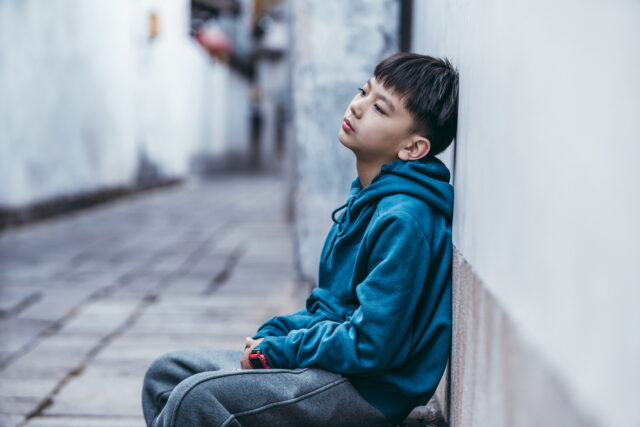 How to Help Kids Who Are Lonely
What parents can say to kids who are struggling socially and how they can help
How to Help Kids Who Are Lonely
What parents can say to kids who are struggling socially and how they can help
-
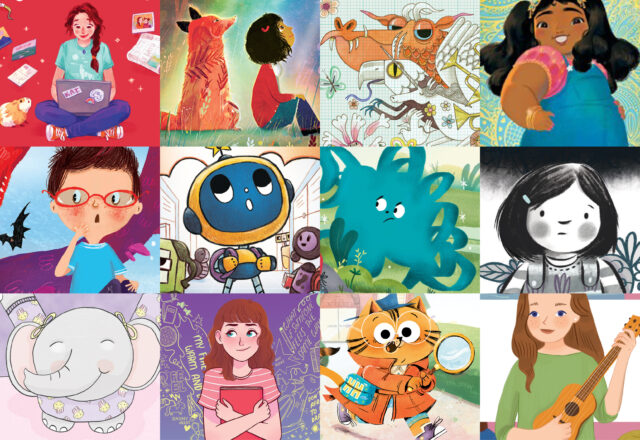 77 Children’s Books About Mental Health
Best books for helping kids understand emotional and learning challenges
77 Children’s Books About Mental Health
Best books for helping kids understand emotional and learning challenges
-
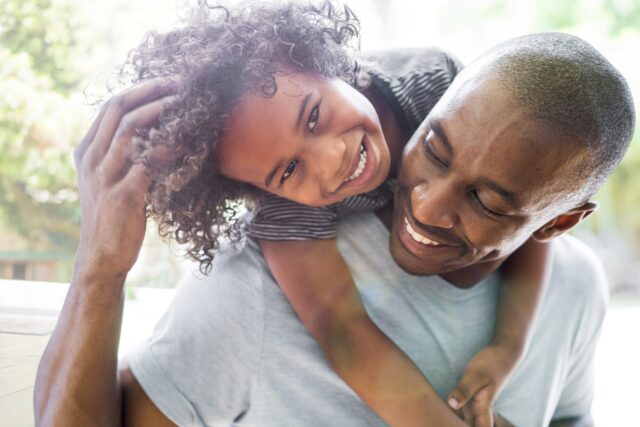 Complete Guide to Managing Behavior Problems
When children struggle with their behavior, it can have a negative impact on everyone in…
Complete Guide to Managing Behavior Problems
When children struggle with their behavior, it can have a negative impact on everyone in…
-
 Complete Guide to Getting Good Care
When a child is struggling, or their behavior worries you, it can be hard to…
Complete Guide to Getting Good Care
When a child is struggling, or their behavior worries you, it can be hard to…
-
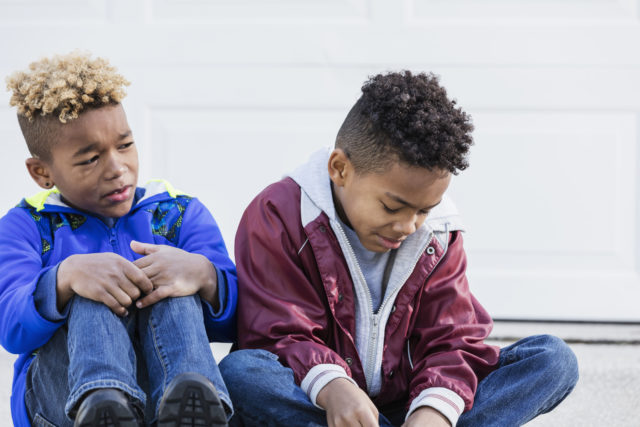 Teaching Kids How to Deal With Conflict
Tips for building lifelong skills
Teaching Kids How to Deal With Conflict
Tips for building lifelong skills
More Related



